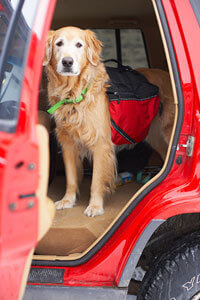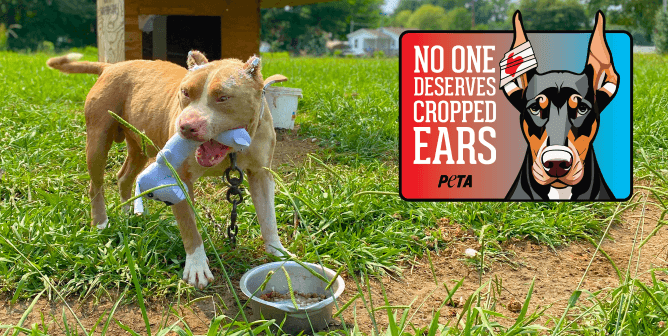You’ve reserved the moving van, registered the kids for school, forwarded your mail, and are about to embark on a new chapter of your life. But is your dog or cat all set for the journey?
For a trouble-free trip, plan out safety measures and gather information well in advance of your departure, especially if you will be moving abroad or flying. Note that in the guidelines below, although we include tips for flying with animals, we absolutely discourage doing so. Modes of transport other than an automobile should be a last resort.
Researching Requirements for Your Move
Does your new locale ban any dog breeds or limit the number of animals one household can have? What are the licensing requirements? Research this information on your new community’s
Web site well in advance of your move to avoid surprises.
Moving to Another State
- Most states require you to obtain and carry interstate health certificates for dogs and horses before entering.
- All states require dogs and cats to be current on their rabies vaccinations.
- Hawaii quarantines cats and dogs for 120 days.
- You may need to secure an entry permit from your destination state’s regulatory agency.
- A few states carry out border inspection of all animals being transported; others inspect randomly.
Contact the state veterinarian, State Department of Animal Husbandry, or other appropriate authority for information on requirements particular to your location.
Relocating Internationally
Most governments have quarantine and health requirements such as proof of a neutralizing antibody titration test for rabies performed more than six months before the date of importation for arriving animals, so it is essential to research this and plan for the expenses that you will likely incur. Contact the consulate several months before your move for animal importation requirements. Triple-check all requirements; don’t lose your animal because of oversight.
Questions to Ask the Consulate
According to PetRelocation.com, you should ask the following questions of the consulate for the country that you will be traveling to:
- What restrictions are there for importing companion animals into your country?
- Which documents will I be required to furnish?
- Are there age restrictions?
- Are any special vaccinations or tests required?
- Are there specific country restrictions?
- Are there any country/local holidays during or around the time of my planned trip?
- Are there special quarantine requirements?
- Are quarantine facilities available on the planned arrival date and station?
- How will my animal clear customs?
- Do I need to be present in order for my animal to clear customs?
Moving Day—Packing Up
If your dog or cat becomes anxious easily, then watching furniture and boxes of belongings leave the house must be quite distressing. Let them take refuge in a quiet room to rest with their bed and toys. This is especially important if there’s a chance that they could sneak out the door while people are moving in and out.
Wait for the last moment to pack up your companion animals’ toys, bed, food, and bowls so that they are comforted for as long as possible by the presence of familiar things. If possible, let animal bedding skip a few washes so that for the weeks following your move, they will have something familiar-smelling in the new house.
To keep kitties away from the chaos of emptying the house of all its contents (and to save you hours of searching when it’s time to leave!), let them rest in one room for a while with all the doors and windows shut. Provide a litter tray, water, and food (but, to avoid car sickness, don’t feed them just before traveling). Put a notice on the door to remind everyone that it should remain closed.
Put tags with your new phone number and address on your animal.
Settling Into Your New Home
Help your dog feel secure by sticking to your usual routine, plus lots of extra walks—a good way to get him or her used to your new surroundings.
Leave kitties in the carrier until you have one secure room—close all doors, windows, and fireplaces, and put out water, food, and a litter tray. Leave them with some familiar bedding, and if it’s chilly, a hot water bottle wrapped in a blanket for security. Let them out in the new house to explore once it is secured and the movers have left. Let them rub their scent on furniture, walls, and doors, which increases their feeling of security. You may find that small, frequent meals at first will help your cats feel more secure because of your increased contact with them at feeding times.
You and your animals have been through a lot—and they need you even more now as they wonder what their future holds (especially if you have adopted an animal who has had multiple homes or an unstable living history). Reconnect and wind down together by playing, snuggling, and relishing one another in the knowledge that you made it to your new home together safely.
Daily Checkup
Animals can easily become uncomfortable or ill in new places, so watch closely for changes in appetite, energy level, and temperament. Have a veterinarian examine your animal companion if there is any unusual discharge from the eyes or nose or if the animal is excessively scratching or biting at his or her body, is drinking water excessively, or has abnormal elimination or if you are concerned about any physical or behavioral changes.








